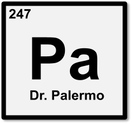How to be Successful in Regents Chemistry
For most students, Regents level chemistry will be the most challenging course they have encountered thus far unless they have taken AP courses. This will require a significant increase in the amount of work and effort they have previously done in living environment and earth science as the state average for the chemistry Regents is generally 10pts compared to those exams (there is also only a very small curve on chemistry regents exam as opposed the to large curve on their previous science Regents.) If students want to be successful they must follow the guidelines below and trust my experience to help them through this course and ultimately become better learners. Below is the minimum list of things that each student should be doing:
Here is a link to advice from former students on how they were successful www.mrpalermo.com/advice-from-former-students/words-of-wisdom-from-my-former-students#comments
I look forward to working with you this year as we embark on this journey and hopefully have some fun along the way.
Mr. P
- Watch all HW videos before the due date (these help prepare students for the lesson the next day)
- Actively take notes from the videos, working out the problems and marking down areas of confusion
- The next day in class, use your notes as instructions to help you apply what you have learned to the class problems. MANY STUDENTS WILL COME TO CLASS AND IMMEDIATELY ASK FOR HELP WITHOUT TRYING ANY OF THE PROBLEMS AND/OR USING THEIR NOTES. This will not help in the long run you as you need to process the information so that you can figure out what specific areas you need assistance on. The more you can figure out on your own the better you will be at problem solving on the Regents exam and for future courses.
- It is your job to check your answers to the practice problems and finish the class lesson at home if you don't finish in class.
- If you leave class and don't feel confident it what you just learned, come to extra help asap so that we can work 1 on 1 to improve your understanding.
- Review a little each day!!!! Long term retention is key in this course. Before doing the hw each night, take 5-10 minutes to review the problems you have done in class from previous lessons so that you do not forget how to do them.
- Start studying a few days prior to the exam!!!! This is a must!!! Make sure it is active studying where you are doing practice problems. You can use your practice packet by covering the answers and repeating the problems. Then when you are finished you can check your answers to see if they are correct.
- Do the castle learning online quiz which is due the night before every exam. These are the same types of questions on the exam and will help you prepare.
Here is a link to advice from former students on how they were successful www.mrpalermo.com/advice-from-former-students/words-of-wisdom-from-my-former-students#comments
I look forward to working with you this year as we embark on this journey and hopefully have some fun along the way.
Mr. P





